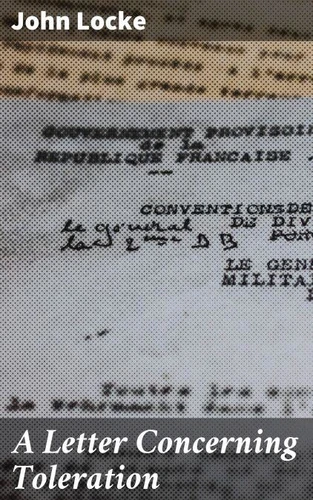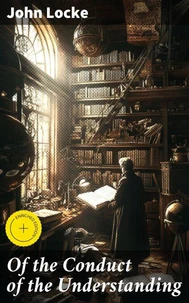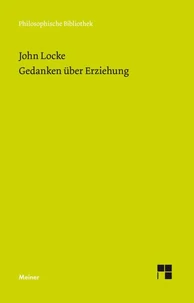A Letter Concerning Toleration. Advocating for Religious Freedom and Civil Rights in the Enlightenment Era
Par :Formats :
Disponible dans votre compte client Decitre ou Furet du Nord dès validation de votre commande. Le format ePub est :
- Compatible avec une lecture sur My Vivlio (smartphone, tablette, ordinateur)
- Compatible avec une lecture sur liseuses Vivlio
- Pour les liseuses autres que Vivlio, vous devez utiliser le logiciel Adobe Digital Edition. Non compatible avec la lecture sur les liseuses Kindle, Remarkable et Sony
 , qui est-ce ?
, qui est-ce ?Notre partenaire de plateforme de lecture numérique où vous retrouverez l'ensemble de vos ebooks gratuitement
Pour en savoir plus sur nos ebooks, consultez notre aide en ligne ici
- Nombre de pages50
- FormatePub
- ISBN406-4-06-644657-4
- EAN4064066446574
- Date de parution11/04/2021
- Protection num.Digital Watermarking
- Taille674 Ko
- Infos supplémentairesepub
- ÉditeurGOOD PRESS
Résumé
In John Locke's 'A Letter Concerning Toleration, ' the author delves into the intricate relationship between church and state, advocating for the separation of the two entities. Written in the form of a letter, the book presents Locke's arguments in a clear and persuasive manner, making it accessible to a wide range of readers. Locke's work is considered a seminal piece in the development of religious toleration and the principles of liberty of conscience.
Drawing on historical and philosophical sources, Locke's writing is both rigorous and compelling, appealing to both scholars and general readers interested in the intersection of politics and religion. Locke's emphasis on individual rights and the need for religious freedom resonates with contemporary debates on secularism and religious pluralism. 'A Letter Concerning Toleration' is a timeless classic that continues to provoke thought and reflection on the role of religion in society.
Drawing on historical and philosophical sources, Locke's writing is both rigorous and compelling, appealing to both scholars and general readers interested in the intersection of politics and religion. Locke's emphasis on individual rights and the need for religious freedom resonates with contemporary debates on secularism and religious pluralism. 'A Letter Concerning Toleration' is a timeless classic that continues to provoke thought and reflection on the role of religion in society.
In John Locke's 'A Letter Concerning Toleration, ' the author delves into the intricate relationship between church and state, advocating for the separation of the two entities. Written in the form of a letter, the book presents Locke's arguments in a clear and persuasive manner, making it accessible to a wide range of readers. Locke's work is considered a seminal piece in the development of religious toleration and the principles of liberty of conscience.
Drawing on historical and philosophical sources, Locke's writing is both rigorous and compelling, appealing to both scholars and general readers interested in the intersection of politics and religion. Locke's emphasis on individual rights and the need for religious freedom resonates with contemporary debates on secularism and religious pluralism. 'A Letter Concerning Toleration' is a timeless classic that continues to provoke thought and reflection on the role of religion in society.
Drawing on historical and philosophical sources, Locke's writing is both rigorous and compelling, appealing to both scholars and general readers interested in the intersection of politics and religion. Locke's emphasis on individual rights and the need for religious freedom resonates with contemporary debates on secularism and religious pluralism. 'A Letter Concerning Toleration' is a timeless classic that continues to provoke thought and reflection on the role of religion in society.












